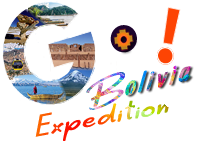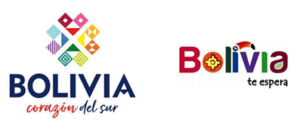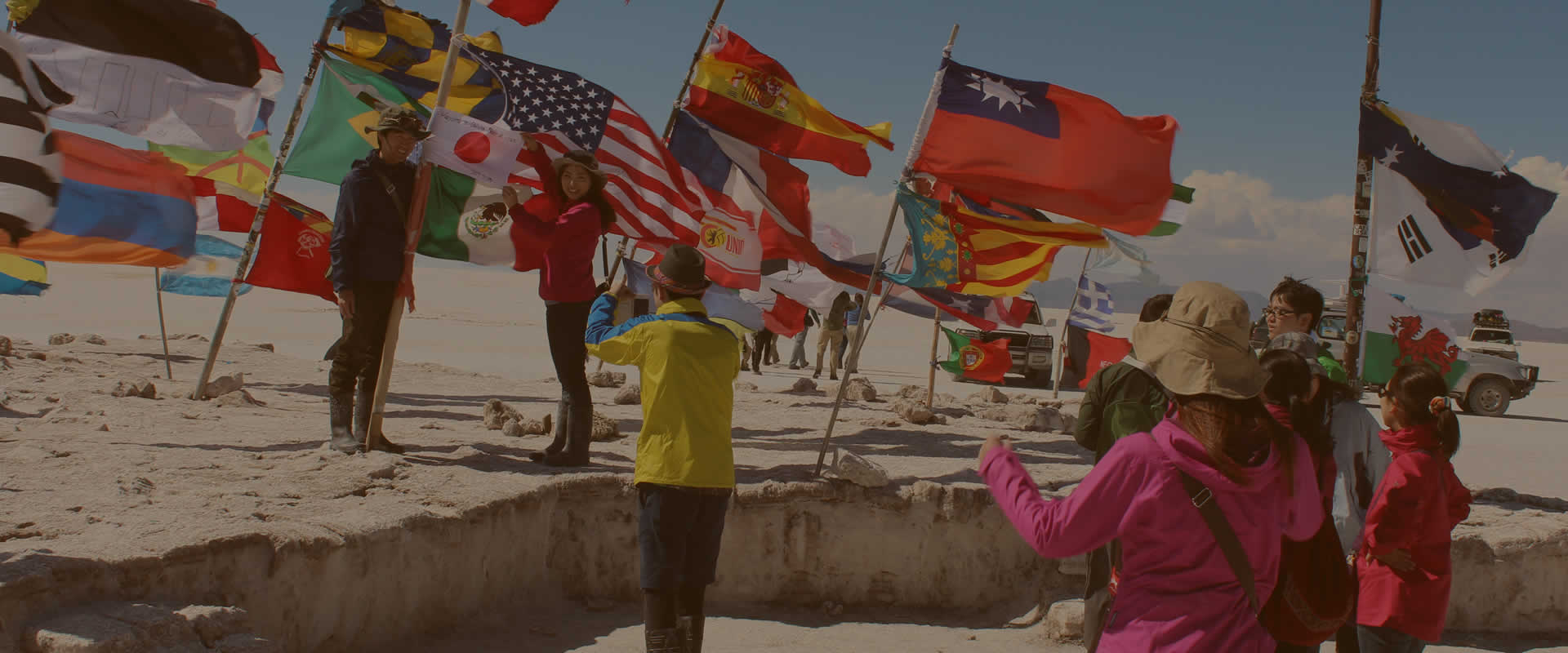
We offer you our quality and efficiency in all the tourist services we have.


Before starting your trip to Bolivia, we recommend that you keep in mind the following information and/or heed the following advice.
Issues can arise when a person is not accustomed to the altitude of a region – known as Sorojchi (Bolivia) – and can be manifested via occasional symptoms and in various ways differing upon the person – such as: headaches, exhaustion, a loss of appetite, nausea, and/or dizziness. For those who are not adequately accustomed to high altitude, we recommend buying and chewing on coca leaves during the trip, drinking tea made from coca leaves, and/or passing the first day resting and becoming accustomed to the altitude by not doing any strenuous activities. In addition to this advice, you could also acquire Sorojchi / Soroche tablets formulated specifically for the treatment or prevention of the symptoms that accompany altitude issues. No matter the time of year, it is always recommended to be prepared to confront altitude issues.

It is important to walk gradually and to not do anything that requires much physical effort; remember: will be at high altitudes for most of the time while enjoying your travels. Ideally, you should rest for a few hours after arriving.
If you feel like the air is thin and you are having trouble breathing, you can ask for oxygen tanks/masks even while in the airport.
If you are arriving by plane to high altitude areas, keep from eating heavy meals and/or drinking beverages that are very high in carbonation (gas); smoking isn’t encouraged either – neither is the drinking of coffee.
Drink at least 2-3 liters of water daily, as well as natural herbal teas, to maintain adequate hydration.
Maintain a light diet that is high in carbohydrates and without gases, eaten in small quantities and at various times throughout the day in order to keep your energy up. For those who like to try new foods, reserve yourself a little bit and don’t try anything that your body is not accustomed to until you are sure that you are accustomed to the altitude.
In high areas, make sure you get rest when you can, you may even take naps when you’re able to.
Drink hot tea made from coca leaves, chamomile, and/or anise after every meal.

Be sure to be in near-to-perfect health before traveling a long distance; consult your family medical doctor to see if you are apt to make long trips as it is never recommended for anyone to travel with health issues. In addition, please do not forget to buy travel insurance that covers every country you will visit and all your activities – even to prevent the most minimal possible problems – so that you can be grateful that you had thought of it before traveling. If you have been plagued with some sort of chronic sickness, make sure to take with you necessary medication for the entirety of your trip.

As water is vital for good health, it is recommended to drink water that is purified (bottled water that can be purchased), boiled water, and/or to bring with you purifying water tablets. We do not recommend drinking local tap water as we are not sure about its chemical treatment.

It is highly recommended to receive the yellow fever vaccine if you are planning to visit tropical regions and/or regions that contain the jungle due to the risk of receiving yellow fever (transmitted by infected mosquitos). The vaccine should be received by an authorized doctor at a minimum of 10 days before arriving to your destination.

The months in-between May and November are ideal to visit Bolivia due to their accompaniment of bright sunlight and dry weather. The rainy season starts in December and lasts until March – so, if you plan on visiting Bolivia during this time period, we always suggest bringing a rain coat or umbrella with you.
During the daytime, it is hot – at night, it is cold. We suggest taking with you light clothes for the day – such as: sportswear, slippers, and comfortable pants; likewise, we suggest taking with you warm clothes for the night – such as: jackets, thermal clothing, scarfs, and gloves.
If you are planning on taking a tour to Uyuni to enjoy the Uyuni Salt Flats as well as the various lagoons found within, we suggest taking with you: sleeping bags, coats, thermal clothing, gloves, scarfs, hats, wool hats, lanterns, hygiene bags, sunglasses, and sun block. Please keep in mind that – likewise – it can become hot during the day and cold during the night.
For the Bolivian jungle, we recommend the following: light clothing, long-sleeve shirts, long pants, shorts, hats to cover your head from the sun and heat, light windbreakers, 2 pairs of shoes, swimming trunks and/or bathing suits, lanterns, towels, and insect repellent.

In Bolivia, electricity runs at 220 volts; therefore, we suggest that you review the voltage that is allowed by your electronic items before connecting to them to any electric socket.

The official Bolivian currency is what is called “bolivianos (Bs)”; the currency circulates in centavos (10s, 20s, and 50s), bolivianos (1s, 2s, and 5s), and Bolivian bills (10s, 20s, 50s, 100s, and 200s).
Bank exchange rates generally are not very favorable; it’s possible to receive a better exchange rate in currency exchange houses. While you will find these at just about any location, we can provide for you the best locations upon arrival to our office.
The CBB2 series of Bolivian bills (100s) are not accepted in banks; some currency exchange houses will accept them – but at a decreased exchange rate. You may change euros and USD$ dollars in various cities throughout Bolivia; please keep in mind that you will always be able to find better currency exchange rates in bigger cities.

Spanish, Quechua, and Aymara are the official languages in Bolivia even though there are many other dialects of the different tribes of the jungle regions; English is spoken in the various principal touristic areas.

Before traveling, take a photo of your passport and plane tickets and guard them in a secure place that is different than the originals.
Utilize the security boxes that you find in the hotels and guard your passport within.
Try not to put yourself in a position where you could receive a lot of attention by bringing valuable items with you.
Only take with you sufficient money and not grand quantities for each day of your visit.
When depositing or withdrawing money from ATM machines, make sure that no one is behind you trying to see your personal access information; you can evade the risk of being robbed like that.
If you plan on taking any type of taxi, make sure that it is a “radio taxi” which are the most trustworthy; you can also have your hotel or a restaurant call them for you
Be careful to protect yourself and to not pay attention to the techniques used by robbers to steal your belongings – especially in bus stations and in other crowded places.

NOTE: entry requirements may be subject to change every year; if there are any doubts, you can always visit your nearest Embassy and/or Bolivian Consulate – or, you may visit the Ministerio de Relaciones Exteriores’ website for the most up to date information – found here: http://www.cancilleria.gob.bo/webmre/.
Internationals from countries found in Group I are not required to obtain a tourist visa to enter into Bolivia; however, they should complete the following requirements:
NOTE: It is NOT necessary to have a visa to enter to Bolivia for American citizens (USA)
